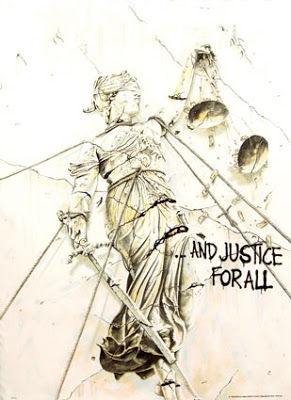
One of the hallmarks of Cultural Marxism and wokeness is the belief that justice can not be attained by treating people equally or even by treating them as individuals. Instead, a “System of Oppression” that is proclaimed to be at the very core essence of society is to blame. The “proof” of this is racial disparity of the “oppressed” group being statistically worse off vis-à-vis the dominant “oppressor” group. This is what has become known as “disparate impact” where “any variance in […] statistics involving race vis-à-vis racial demographic statistics is presumed to be caused by racism.”
But where did this concept come from? Legally, it was invented by the Supreme Court in Griggs v. Duke Power Co. (1971).
Griggs v. Duke Power Co. (1971) is one of the most influential U.S. Supreme Court decisions in employment law. It introduced the concept of "disparate impact," and its implications reach far beyond the workplace. Here's why it was a mistake. 🧵 pic.twitter.com/EvSZJgtjcA
— Logan Lancing (@LoganLancing) January 4, 2025
In Griggs, Duke Power required employees to pass IQ tests or have a high school diploma to qualify for certain jobs. The Court ruled these requirements were discriminatory because they disproportionately excluded black workers, even without discriminatory intent.
— Logan Lancing (@LoganLancing) January 4, 2025
The Court held that practices neutral on their face could still violate the Civil Rights Act of 1964 if they resulted in disparate outcomes for protected groups, unless the employer could show the practice was "job-related and consistent with business necessity."
— Logan Lancing (@LoganLancing) January 4, 2025
This decision shifted focus from intentional discrimination to statistical disparities. The burden of proof fell on employers to justify neutral practices, even when no intent to discriminate existed.
— Logan Lancing (@LoganLancing) January 4, 2025
This decision became the legal basis for racially conscious government decision making (and business decision making via the threat of government legal action), and the justification for equity.
Disparate impact theory is flawed for several reasons. First, it assumes equality of outcomes should be the norm, ignoring individual differences in skills, education, or experience. Inequality is and has always been the norm.
— Logan Lancing (@LoganLancing) January 4, 2025
Second, it undermines objective standards in hiring. Employers avoid practices that could create statistical disparities, even if those practices are effective for screening qualified candidates.
— Logan Lancing (@LoganLancing) January 4, 2025
Third, it incentivizes hiring based on race or other protected characteristics to avoid legal challenges, effectively institutionalizing race-conscious decision-making in the workplace.
— Logan Lancing (@LoganLancing) January 4, 2025
Disparate impact also expanded beyond employment. It influences housing, education, and lending practices, creating incentives to prioritize outcomes over merit, fairness, or individual accountability.
— Logan Lancing (@LoganLancing) January 4, 2025
>It catalyzed the "DEI" boom, blowing open the door for Critical Race Theory and the rest to step in and claim "expert" status for telling companies, etc. how all of this is supposed to work.
— Logan Lancing (@LoganLancing) January 4, 2025
The unintended consequence is a chilling effect on innovation and efficiency. Companies fear legal repercussions more than they value optimizing for excellence or productivity.
— Logan Lancing (@LoganLancing) January 4, 2025
Griggs v. Duke Power set a precedent that shifted civil rights law from addressing explicit discrimination to enforcing statistical equity. This undermines true fairness and erodes trust in objective standards.
— Logan Lancing (@LoganLancing) January 4, 2025
Justice should focus on rooting out intentional discrimination, not imposing statistical parity. Griggs entrenched identity politics in law, with long-term cultural and economic consequences.
Here we are.
— Logan Lancing (@LoganLancing) January 4, 2025
The solution isn't to ignore disparities, and ot certainly isn't to punish employers for neutral standards. Ending disparate impact doctrine would be a huge victory for correcting the course and replacing "social justice" with justice.
— Logan Lancing (@LoganLancing) January 4, 2025
Disparate impact law prioritizes equality of outcome over equality of opportunity. Griggs v. Duke Power opened the door to policies that undermine individual merit and distort societal incentives. It's time to end it.
— Logan Lancing (@LoganLancing) January 4, 2025
Many bad Supreme Court precedents have fallen in recent years. This is another one ripe for the picking.






